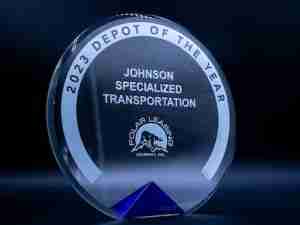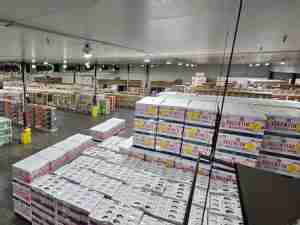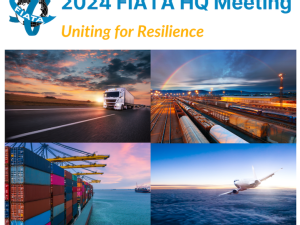NCBFAA stated that current CBP regulations require a TSCA certification for all chemical substances or mixtures, whether they are subject to TSCA or not. That is, the certification must state that either 1) all chemical substances in the shipment comply with TSCA or 2) all chemicals in the shipment are not subject to TSCA, a so called negative certification. Prior to ACE, the positive or negative certification could appear as a printed or stamped statement on the commercial invoice or entry document, or as an attachment thereto. Or, a blanket certification could be filed annually at the port of entry. Now, as entry filing in ACE becomes an option for imports subject to TSCA, CBP is proposing to eliminate the blanket certification process altogether and to require certification information to be provided at entry filing not only for chemical imports subject to TSCA, but for all all chemical imports NOT subject to TSCA, as well, even if they are clearly identified as non-TSCA regulated products. This would include such products as pesticides, food, food additives, drugs, cosmetics or devices, nuclear material, firearms and ammunition. All of these products are already subject to reporting to EPA or to other agencies under other laws. In NCBFAA’s view, requiring a negative certification for these non-TSCA products is an overreach that is incompatible with Executive Order 13659, Streamlining the Export/Import Process for America's Businesses, which aims to simplify and streamline trade processes at the border. CBP dismisses the economic impact of providing the additional data elements for an estimated 2.5 million TSCA positive certifications and 230,000 negative certifications, saying the cost will be minimal. EPA's own regulations implementing section 13 of TSCA (40 CFR 707.20(b)(2)(ii)) only requires the submission of a negative certification when a non-TSCA regulated chemical import is not clearly identified as a pesticide or other chemical not subject to TSCA. NCBFAA urges CBP to include an exemption from the negative certification for chemicals that are clearly identified as a pesticide or other chemical not subject to TSCA. NCBFAA notes that CBP also proposes to require submission of additional information relating to the certifying individual, including name, phone number and email address. For entries filed electronically in ACE, this additional information should only be required at the header level, rather than provided for each TSCA line. The distinction is important to filers for two reasons: A line level requirement means re-inputting the same data over and over again. One entry can have dozens (even hundreds!) of lines. It would make no sense to impose a repetitive manual task of this nature when the information can be provided once at the Entry header level. A line level requirement also increases the file size. We already have to worry about reaching the 8 mb and 999 line limit for each entry. This would only exacerbate that problem. Therefore, NCBFAA further implores CBP to require the contact information only at the header level. NCBFAA also claims that NPRM also does not address how TSCA certification requirements will apply to Informal Entries (valued at $2500 or less) or Section 321 entries (shipments of de minimis value, which was set at $200, but has been increased to $800 by the Trade Facilitation and Trade Enforcement Act signed into law on February 25, 2016). With the de minimis threshold increase to $800, lower-value shipment volumes will likewise increase. The statute (15 USC 2612) and regulations (19 CFR 12.121) are very clear that no chemical product subject to TSCA shall enter the US unless it complies with TSCA and is certified as complying by the importer. Headquartered in Washington, DC, the NCBFAA represents more than 1,000 member companies with 110,000 employees in international trade - the nation's leading freight forwarders, customs brokers, ocean transportation intermediaries (OTIs), NVOCCs and air cargo agents, serving more than 250,000 importers and exporters. Established in 1897 in New York, NCBFAA is the effective national voice of the industry. Through its various committees, counsel and representatives, the Association maintains a close watch over legislative and regulatory issues that affect its members. It keeps them informed of these and other related issues through its weekly Monday Morning eBriefing, and various meetings and conferences throughout the year.
NCBFAA Submits Letter to CBP about Toxic Substance Control Act
posted by AJOT | Oct 05 2016 at 08:14 AM | Logistics
WASHINGTON – The National Customs Brokers and Forwarders Association of America, Inc. (NCBFAA) recently submitted a letter to the U.S. Customs and Border Protection (CBP) regarding the requirements to file a Toxic Substances Control Act (TSCA) certification when importing chemical products.









